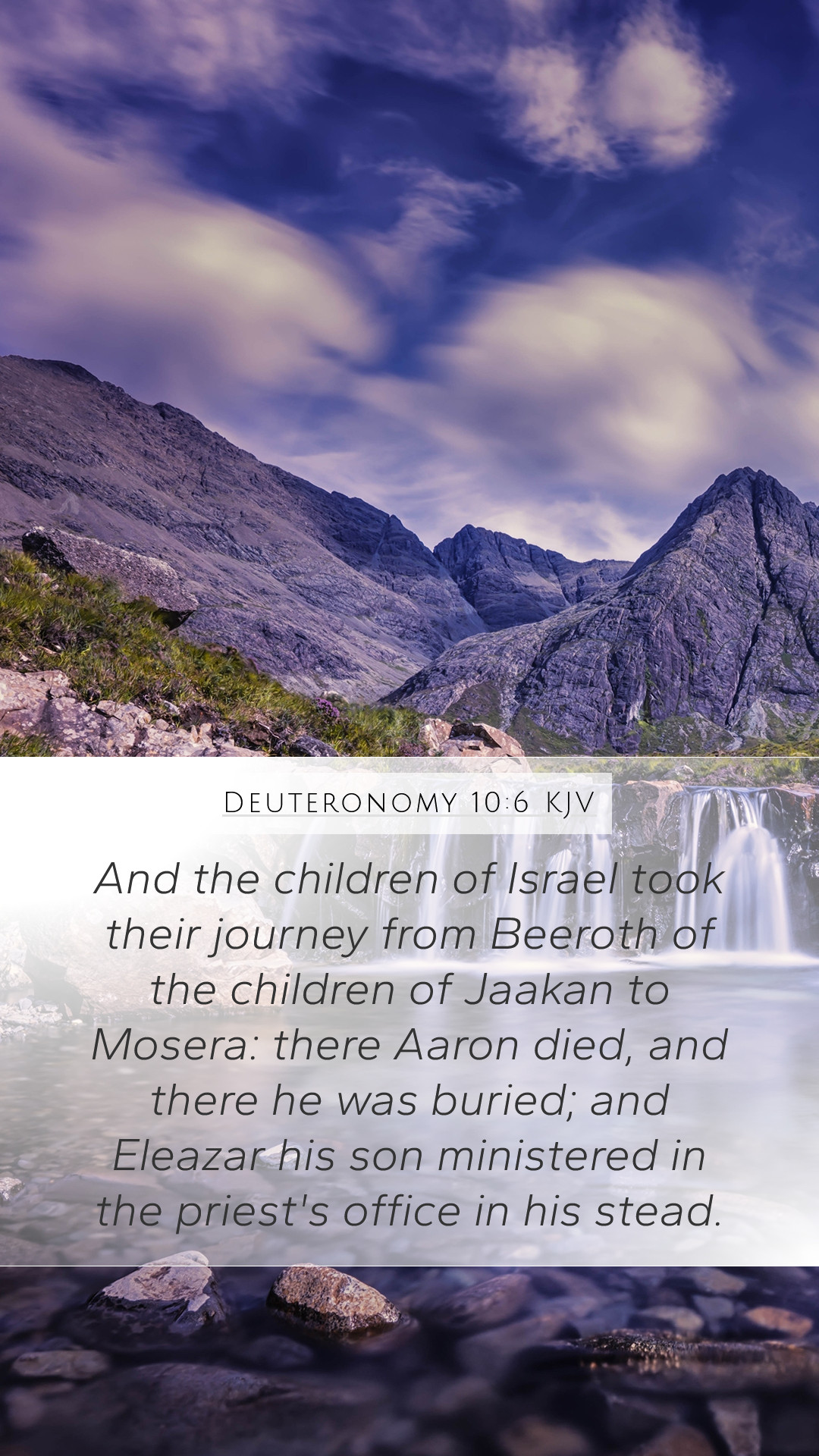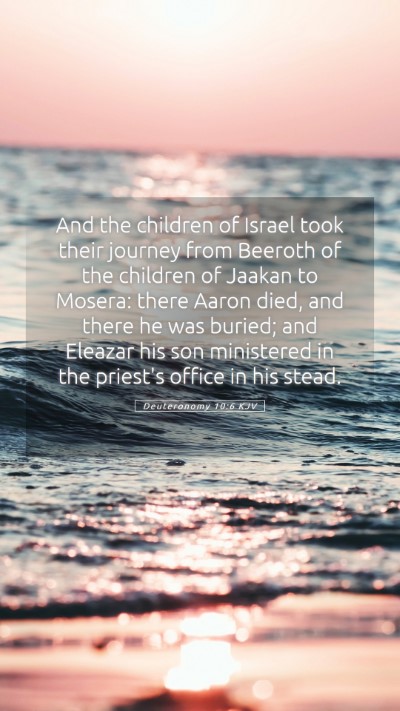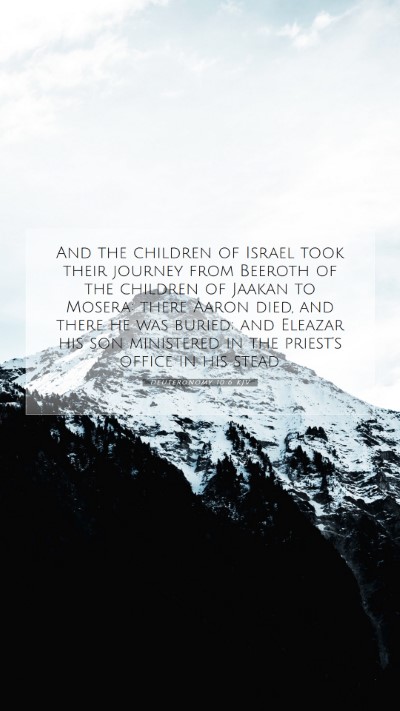Understanding Deuteronomy 10:6
Deuteronomy 10:6 is a significant verse within the Pentateuch, reflecting crucial themes of Israel's journey, God's promises, and their responsibilities. This verse reads:
"The children of Israel had journeyed from the wells of Benejaakan to Mosera: there Aaron died, and there he was buried; and Eleazar his son ministered in the priest's office in his stead."
Verse Meaning and Context
This verse reflects on a specific transition in the life of the Israelites as they wandered in the wilderness. Understanding this verse's implications requires examining its historical and spiritual context.
Historical Context
As noted in several public domain commentaries:
-
Matthew Henry: Emphasizes the importance of remembering the journeys and transitions in the Israelites' saga. He points to Aaron’s death as a pivotal moment when leadership transitioned during a critical part of their journey to the Promised Land.
-
Albert Barnes: Notes that the journey from Benejaakan to Mosera showcases God’s invariable guidance in Israel's travels. He highlights the significant transition of the priestly role from Aaron to Eleazar, symbolizing continuity in worship practices among the Israelites.
-
Adam Clarke: Provides insights on the geographical locations mentioned, interpreting them as markers of Israel's dependency on God's provision despite fluctuating leadership and obedience. Clarke stresses the relevance of both places as reminders of God’s faithful guidance and sustaining grace.
Spiritual Meaning
On a spiritual level, Deuteronomy 10:6 serves several important themes:
-
Leadership and Succession: The transition of the priestly role from Aaron to Eleazar illustrates God’s sovereign plan for leadership within the community. It reminds readers of the importance of continuity in spiritual guidance and the responsibility placed on new leaders.
-
Remembrance of God's Guidance: This verse encourages Israelites (and modern readers) to remember God’s faithfulness through their journey. It evokes a sense of gratitude and recognition of divine sustenance amid trials.
-
The Role of Community: The mention of both Aaron and Eleazar highlights the significance of community and shared responsibilities in worship and spiritual matters, indicating the need for collective faith in God's promises.
Bible Study Insights
For individuals engaged in bible study groups, this verse can spur discussions on leadership, faithful guidance, and the historical journey of Israel. Utilizing bible study tools and bible study resources can enhance understanding of these themes and their applications today.
Applying the Verse to Daily Life
Modern readers can derive meaningful lessons from this verse by contemplating:
- How to support and uplift leaders in their communities.
- The significance of recognizing God's hand in both our journeys and transitions.
- The importance of collective faith and worship within our communities.
Additional Bible Cross References
To deepen the exploration of themes in Deuteronomy 10:6, consider these related scriptures:
- Numbers 20:28: This verse details the death of Aaron, providing context to his role and legacy.
- Joshua 1:5: God's promise of continual presence emphasizes courage during transitions in leadership.
- Hebrews 5:4: This passage discusses the nature of priestly calling, linking Old Testament priesthood to Jesus' eternal priesthood.
Conclusion
In summary, Deuteronomy 10:6 encompasses rich themes regarding leadership, community remembrance of God's guidance, and the roles of individuals within God’s plan. For those on a quest for bible verse interpretations and bible verse explanations, this verse serves as a poignant reminder of the faithfulness of God through the journey of His people. By engaging in online bible study and utilizing bible study guides, individuals can unlock further insights into the complexities of scripture and its application in life.


